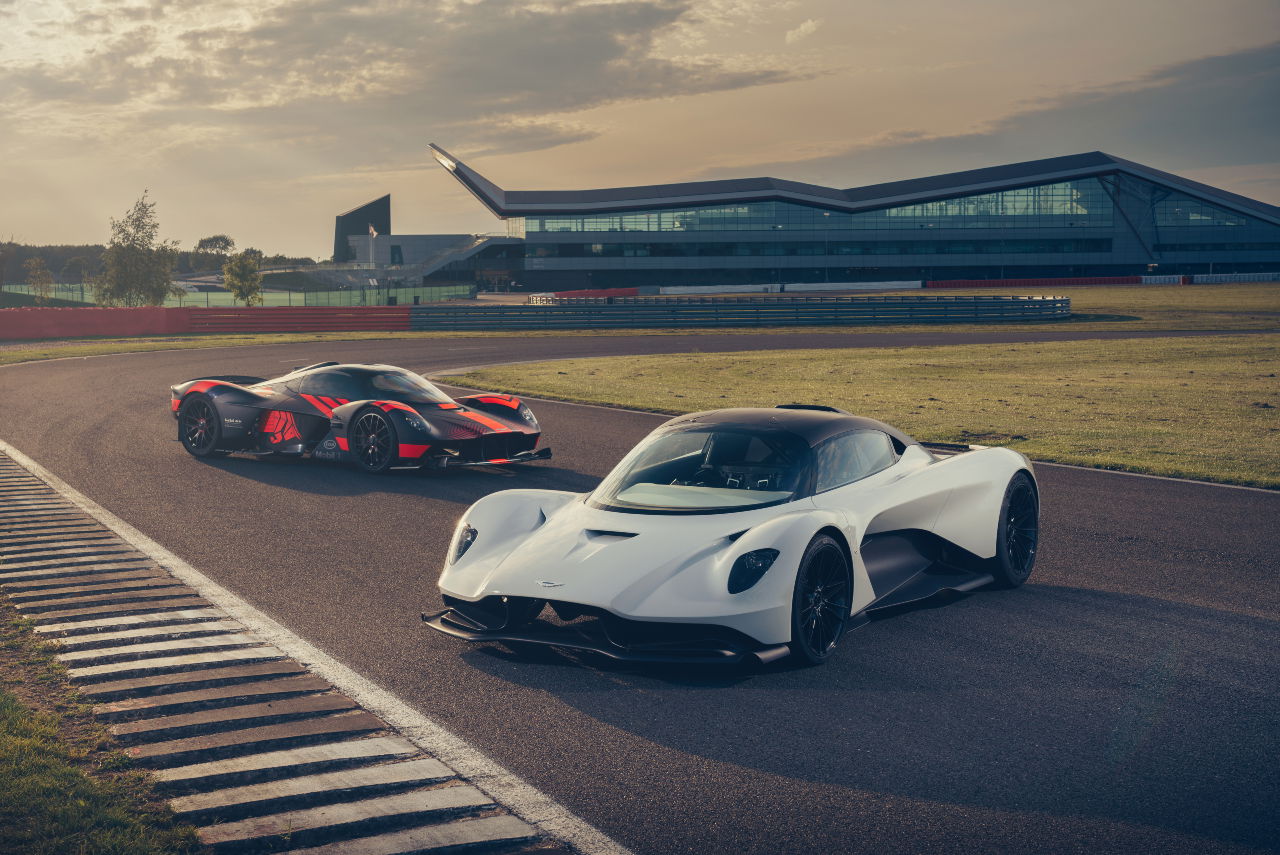
Aston Martin and Mercedes-Benz are already partnered closely on the Formula 1 circuit – now the two companies will be forging tighter connections off the track.
The two companies have announced a new partnership that will see the German brand supply technical parts and knowledge to the British brand, in return for an increased stake in Aston Martin.
The two began working together on road cars in 2013, with Mercedes-AMG supplying its 4.0-litre twin-turbo V8 and electrical architecture for the new Vantage and DB11, in return for a 2.3 per cent stake. Under these new terms Mercedes will increase its ownership to 20 per cent in a staged build up over the next several years.
In return Aston Martin will get access to Mercedes’ range of powertrains for internal combustion engines, hybrids and even electric cars. As well as “future oriented electric/electronic architecture” until 2027.
The deal has been dubbed “transformational” by Aston Martin executive chairman, Lawrence Stroll, because it will allow the British brand to focus on expanding its range without the need to invest in expensive and complex powertrains; especially as the industry moves towards electrification.
It’s unclear where this deal leaves Aston Martin’s in-house developed 3.0-litre V6 turbo engine, which was set to replace the AMG 4.0-litre V8 in the Vantage, after debuting in the all-new Valhalla supercar in 2022. The new engine wasn’t mentioned at all in the extensive statement issued by Aston Martin.
This arrangement continues to strengthen the ties between the two brands, with Stroll’s Racing Point F1 team already an engine customer of Mercedes-AMG and will continue to be as the team transitions to become the factory Aston Martin squad in 2021. The German team’s F1 chief, Toto Wolf is already a shareholder in Aston Martin too.

Aston Martin chief executive officer, Tobias Moers, is also formerly the head of Mercedes-AMG so is familiar with the products he’ll be working with in the coming decade. Aston Martin’s stated goal with this deal is to increase sales to 10,000 vehicles per annum by the 2024/25 financial year.
“I am very excited to have joined the business to lead this transformation,” said Moers in the statement. “I am incredibly impressed by the great work that has been delivered by the whole team here at Aston Martin. For DBX, the brand’s first SUV, the team at St Athan has followed a quality-led ramp-up as appropriate for our luxury product positioning and we are now delivering to meet customer demand.
“We have updated our plans for the business, incorporating the benefits of our enhanced partnership we are announcing today. We are targeting delivery of significant growth and margin expansion in the medium-term, not just through product expansion but also by incorporating a strategy to deliver a level of operational excellence and efficiency throughout every aspect of the organisation.”

The deal is another major move for Stroll, who has moved to aggressively turn around Aston Martin’s flagging fortunes since taking over earlier this year. He has cancelled plans to revive its dormant Lagonda brand into an electric vehicle luxury sub-brand, and instead with Mercedes’ help will aim to add electric models to the Aston Martin range.
“Through this new expanded agreement, we secure access to world-class technologies to support our long-term product expansion plans, including electric and hybrid powertrains and this partnership underpins our confidence in the future,” Stroll said.
Aston Martin launched its critically-important DBX SUV this year and is closing on the launch of its Valkyrie hypercar, which has been developed in partnership with Red Bull Technologies’ Adrian Newey. It’s meant to lay the groundwork for a new range of mid-engine supercars from the brand – expanding it from its front-engine GT heritage – with the company (pre-Stroll ownership) confirming the Valhalla and Vanquish were due by 2022. It’s unclear if this new deal will impact on those models and the timing of their release.













Discussion about this post